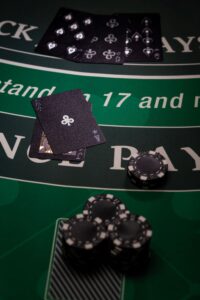When Ian Fleming published Casino Royale in 1953, he not only introduced the world to the suave, ruthless, and ever-elegant James Bond, but also crafted a novel that would come to symbolize the tense Cold War period. In a time when espionage was at its peak and global powers played a delicate game of chess, Casino Royale positioned itself as a gripping reflection of those darker, uncertain days.
A Novel Born in the Shadows of the Cold War
Set in the early days of the Cold War, Casino Royale mirrors the political climate of the time, when tensions between Western nations and the Soviet Union were at their height. In the 1950s in Britain, the fear of communism loomed large, and Fleming, a former British Naval Intelligence Officer, was deeply aware of the undercurrent of espionage and subterfuge that defined global relations. The novel’s backdrop — the relentless chess game between capitalism and communism — emerges vividly through Bond’s mission to stop Le Chiffre, a financier for the Soviet organization SMERSH.
Key Historical Context:
- Post-World War II Britain: The country was recovering from the devastation of war, with its global influence waning. Britain was no longer the imperial power it once was, but in Fleming’s imagination, the British secret agent remained the bastion of Western values.
- Soviet Threat: As the Iron Curtain descended over Europe, Britain found itself on the front lines of the ideological battle against communism. The novel captures that sense of Britain standing alone, its fate tied to the chess match between Western intelligence and Soviet espionage.
- The Dawn of Espionage: The 1950s marked the height of spy intrigue, with both sides employing covert operations, subterfuge, and double agents. Casino Royale is Fleming’s romanticized vision of this clandestine world.
The Creation of Casino Royale
Fleming had always harbored dreams of writing a spy novel, and he finally got his chance while vacationing in Jamaica in 1952. Using his experiences in naval intelligence during World War II as inspiration, Fleming wrote the novel in just two months. Drawing on real-life events, Fleming’s character, James Bond, became the embodiment of his own adventurous and elite lifestyle.
Inspirations Behind Casino Royale:
- Ian Fleming’s Background: Fleming’s time in British Naval Intelligence gave him firsthand experience of the world of spies, deceit, and secret operations. Much of the novel’s realism, especially in its portrayal of espionage, stems from Fleming’s deep knowledge of wartime intelligence.
- The Baccarat Table: The central set-piece of Casino Royale — Bond’s high-stakes baccarat game against Le Chiffre — was inspired by Fleming’s own gambling experiences in Estoril, Portugal. He had often frequented the casinos there, which were hotspots for spies and intrigue.
At its core, Casino Royale is more than a simple spy thriller. The novel delves into themes of duty, sacrifice, and the personal toll of espionage. Bond’s fight against Le Chiffre represents the larger ideological battle of the time: the defense of Western freedom against the Soviet threat. Bond’s famous declaration, “The bitch is dead now,” after the tragic end of his love affair with Vesper Lynd, echoes the disillusionment of a world exhausted by ideological conflict.
Lasting Impact of Casino Royale
Casino Royale remains a powerful reflection of its era — when spies were the silent warriors of the Cold War, and global survival seemed to hang in the balance. Through Bond, Fleming immortalized a unique British hero who stood tall against the tide of communism, navigating a shadowy world where victory was often determined by chance. And so began the legend of 007, the man who would forever change the landscape of spy fiction.